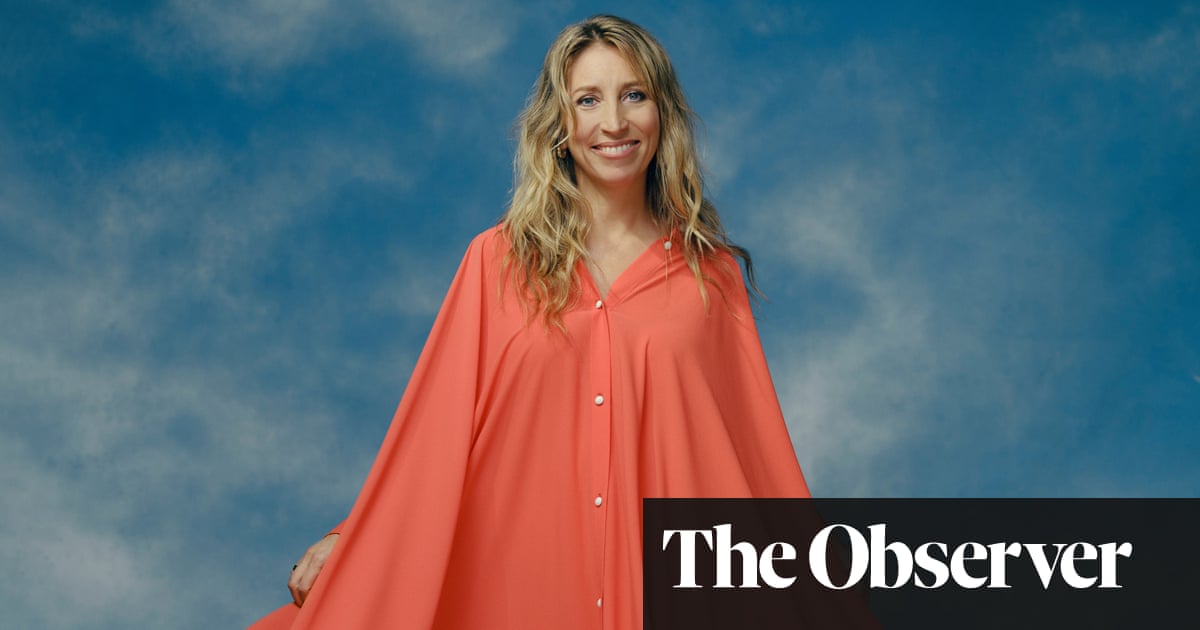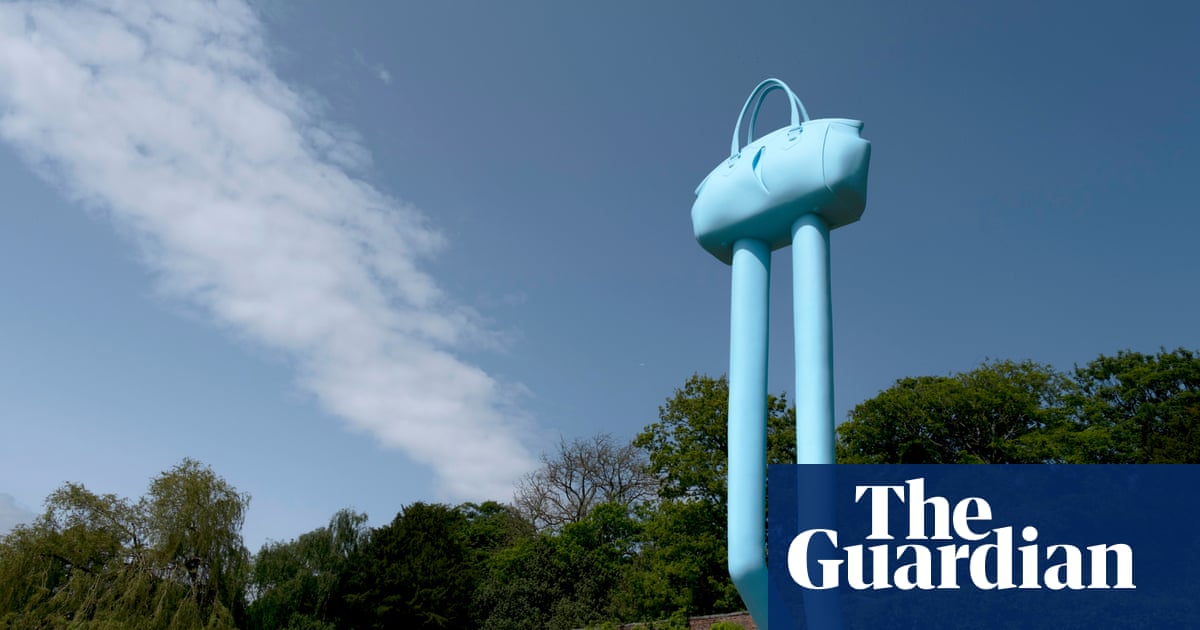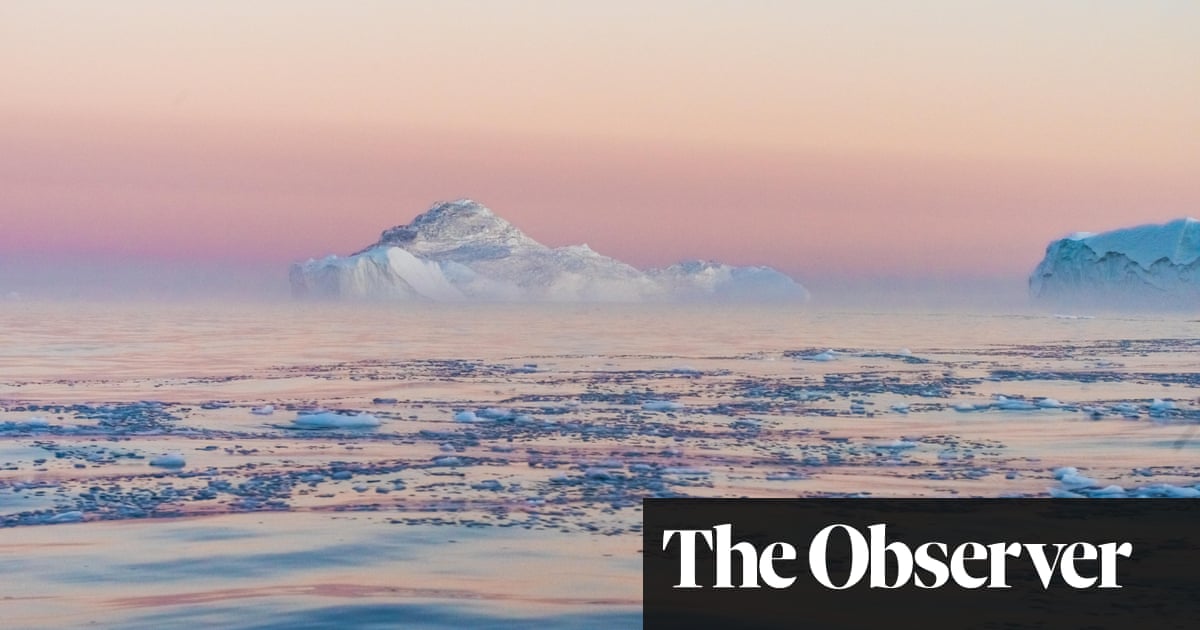
Daisy Haggard is only 10 minutes late for breakfast and yet she’s behaving as if she’s left me standing outside for a night or more, in a snowstorm, with murderers. She went to the wrong restaurant and got a cab through the London traffic, the driver offering to take illegal turns and Haggard screaming, “No! I’m not worth it!” And she is here now, looking like a Modigliani portrait of Brigitte Bardot, talking about the dog shit she stepped in when leaving her house and how this morning has fundamentally destabilised her because she is usually insanely early. Fretting generously and hilariously, she rises to begin an interpretive apology dance and I am in a kind of heaven. When we are calm, we order the eggs.
The characters Haggard plays share a papered-over vulnerability, a sense of mischief and the feeling they might either cry or kill the second you look away. In the past she’s excelled in dark comedies, like Psychoville, with characters (like Ally in Breeders) who are dry but empathic and whose faces (like Myra in Episodes) tell whole stories with a popping eye or curled lip. In 2019, she wrote and starred in Back to Life, a sombre comedy about a woman called Miri Matteson who has spent 18 years in prison for a violent crime. Returning home to small-town Kent, almost everyone knows who she is, but to those who don’t she improvises on the spot. She’s been travelling in Burma, Miri says. Or, she’s been on a really long diet. As she moves through the series, she continues to expect a kindness or empathy in others, despite continually being met with cruelty. This brutal optimism is clearly mirrored in Haggard, who, I have no doubt, this morning felt moved to apologise to the dog shit she stepped in.
“I do believe that vulnerability and being open is a superpower. It’s not true what we’re told – crying isn’t a weakness, it’s a kind of strength.” She bothers her breakfast with a fork. “I spent a lot of my 20s trying to pretend I was cool.” But now, at 45, “I’ve taken the pledge of emotional honesty.”
Adeel Akhtar played Billy, Miri’s love interest in Back to Life. “There is a lovely silliness that Miri and Daisy share that allows people to warm to them straight away,” he says. “She’s such an open and honest person that when you meet her, she is… exactly who she is.”
Nine years ago, when Haggard had her first child (with husband, musician Joe Wilson) part of her thought that was it for her career. Which was fine – she’d had a good run. “I’d had a lot of false starts, too. I’d had about six ‘big breaks’ where I’d quit my job,” pub work, nannying, “and then had to go back in and go, ‘Sorry, so – it actually turns out…’” Being an actor, she’s realised, is less to do with talent and more about “whether or not you can continue to believe and not get broken by rejection”. She had always written – an early poem, which she slipped under her headmistress’s door, was called How You Make Me Feel. One line begins, “You’re not exactly thick, my dear, you’re just a little thin…” But when she became a mother, two things happened. One, she started writing seriously. She wrote in bed in a kind of fever. The second (having auditioned for Breeders on camera, her second baby out of shot as she rocked her with a spare foot) was that she realised it was possible to make good work while also, “Just… being nice?” “I really believe,” she says, firmly, “in having a lovely time.”
Back to Life was commissioned and remembering some brutal sets she’d been on in the past, the bullying, she started shooting by telling the crew: “Let’s be kind. Let’s put people first and try our best to make this feel lovely.” What that meant, in practice, was not expecting anyone to work weekends or “assuming everyone should give up their family time, or their life. We just kept saying it and applying it in as many ways as we possibly could. There’s so much stress and pressure, I wanted to try and prioritise that and see what happened.” What happened was, they made a bleak, profound, Emmy-nominated, quiet masterpiece – and everyone had a lovely time. Akhtar remembers seeing Haggard on the phone between scenes, “working out how best to get some medicine to her kid who had chickenpox. I saw her being an amazing mum to her girls while leading and guiding us through the series. Having just had a baby near that time we were filming,” he realises, “it was a real inspiration.”
It’s funny, sometimes you meet an artist and they’re inspiring because of how single-minded they are or how articulate or because of some insane charisma that slaps you around the face as soon as you enter the room, and sometimes they’re inspiring in the gentlest way that nonetheless means you return home from your meeting and instantly go about rethinking your entire life. Haggard has that sort of gift.
She grew up in south London with her mum, Anna, a stained-glass designer, and her celebrated film director dad, Piers, the youngest of his six kids. He would always tell her to “‘Create the circumstances in which you can shine.’ I didn’t quite get it when I was younger. It’s not about fancy things. It’s just about working out what you need, to do the thing you do? There’s only one of your voice – what do you need to get it out?” It took her a while to work out exactly what those circumstances might involve – encouragement, jollity, home in time to give the kids tea – but now she’s clear on her boundaries and is prepared to say no to any offers that might cross them, she’s radiant. “Things like, I need to feel really relaxed. And then I’m good enough. If someone belittles me, I won’t have any funny bones. I’ll just ice over. Whereas if someone’s nice to me, I’ll be much better at my job. So I realised, that’s how I have to live.” She shrugs, a non-apology.
Last year Haggard shot Boat Story for the BBC, a darkly comic thriller that begins with her character, Janet, agreeing, on the spur of the moment, to steal a lost shipment of cocaine with another down-on-their-luck stranger. It’s fairly mad and very good, and it’s the work of Harry and Jack Williams, the brothers who produced Back to Life and, before that, Fleabag. “Because she’s a brilliant writer, as well as actor, she understands instinctively what the scene needs – not just the lines she has, but her reactions, the way she moves through the scene or favours the camera,” they say. “Arriving at 5am on a freezing cold morning in Redcar in December she still manages to be kind to everyone, positive, brilliant and funny. She went through some particularly hard things during the shoot and showed a level of professionalism and dedication that was quite staggering. She’s a right old laugh, as are her husband, kids and many dogs.”
What would Haggard do, if she stumbled upon a grand haul of cocaine washed up on a shipwrecked boat? She shivers, oh dear, “No, no, no, I’d leave it. I value my safety and family and feeling at peace with the world, at least a little bit?” But then: “Do you think you’d be forever wondering? What might have been?”
Halfway through the Boat Story shoot, her dad died quite suddenly, despite, she says, promising he wouldn’t. “I got a phone call. It was a day off. The producers were amazing, telling me to go home, but I was starting Breeders the day I finished. So there was actually nowhere for the day to go.” She carried on working. “Thankfully, the character doesn’t wear makeup and cries the whole time, so I could just vent. It was hard.” They were really close. “I’d always phone him and talk about my writing and ideas. So I’m really missing him. But then I hear about proper tragedies, you know, real horrors, and I realise I have to separate that…” She sighs. Midshoot, in Yorkshire, she had her director dad’s voice in her head. “Saying, ‘Are you going to pull this off?’” So she did. “And I’m really proud of it. I feel like it’s truly original. It’s wild – very violent and bloody, but there’s a tongue in its cheek that softens the edges in a way that feels really original.”
Again, her character will feel familiar to Haggard fans – fragile, funny, a bit broken – and I wonder whether she consciously chases this thread between the women she plays. She looks a little stricken. “God, it’s like when somebody says, ‘What are the themes in what you write?’ I don’t know!” What are the themes in what she writes? “I don’t know, Eva! People tell me, so I can rehash what someone else says.” Like… “OK, cycles of forgiveness and redemption and hope? So in Boat Story, Janet is the heart and the warmth, and can anchor it as a character, because you can relate to her story and her vulnerability. I do love the underdog. I’m much more interested in people who are striving for something than someone who’s got everything. Maybe that’s my thing?”
She is far more comfortable identifying with the underdog than she is embracing her growing fame. Walking her three dogs recently, a stranger approached her, finger pointing, saying: “Aren’t you that one? From that thing?” Haggard shook her head, nope, sorry, absolutely not. “I get really nervous about those sorts of things. Like when I got nominated for a Bafta, I felt physically sick about the idea of standing on a red carpet. This is not the bit of the job I want to do!” At the Observer photoshoot, she says: “I just didn’t know what to do with my legs! Let alone my hands. I should do a workshop shouldn’t I?” Or an apology dance? Her life, she sighs, “is a series of awkward stories. In my first meeting with an agent I tripped on my flipflops and completely fell over. I’ve ended up accepting that about myself rather than trying to fight it – the fact is, at some point I’m probably going to fall over.” And that, she says, is fine.
In previous interviews, Haggard has discussed how “normal” she is – in hindsight, though, she regrets that. “What I meant was,” she says, squinting with embarrassment, “sometimes I feel like I’m unusual in the sense that, rather than chasing Hollywood, I’d prefer to just do a couple of things that mean something to me, and then go home.” Which is not to say she’s lacking ambition. “I’ve learned now, that I really want to be a good mum, and a partner and walk the dogs. But I also really want to write something I’m proud of, with juicy female characters. And I want to act in things I’m proud of, but – I don’t need to be in everything.”
Talking to her American agents recently she felt panicked when they told her their plans for her huge and glittering summer, and had to gently explain that actually, she’d prefer to go on holiday with her family instead. “It means accepting who you are. If I did everything I was offered, then I would be unhappy, because I wouldn’t be connected to the people I love. While I’m lucky enough to have the option to make a choice, then I try and make the choices that will also keep me in the world I care about.”
She’s worried she sounds like a dick. But it’s important, this stuff, these little reminders that we don’t need to eternally strive for stardom, or compromise what’s important to us, or try to emulate the careers of strangers, but instead find what our own ambition looks like. “Create the circumstances in which you can shine, yes – but then I added my own bit, which is: ‘without being an arsehole’.” Is there a role she would compromise all this for? Something she would chuck it all away for and run to Hollywood? There is not a single beat before she turns, eyes wide, and says decisively: “Elf.”
Boat Story is coming soon to BBC One and BBC iPlayer
Styling by Hope Lawrie; hair and makeup by Lucy Halperin using Color Wow and REN Clean Skincare; photographer’s assistants Zula Rabikowska and Thomas Beck












